Legs crisscrossed apple sauced, students cluster around this afternoon’s special guest. Today is Winter Wonder.
Anticipation builds as Wildsight Educator Jessie “Frost” Caza leads the young students through games to learn about winter animals and how, in particular, the chickadee thrives through Canada’s snowiest season. They learn all about how it looks, acts, and even the Ktunaxa and Secwepemc names for this little bird, then bundle up to head outside.
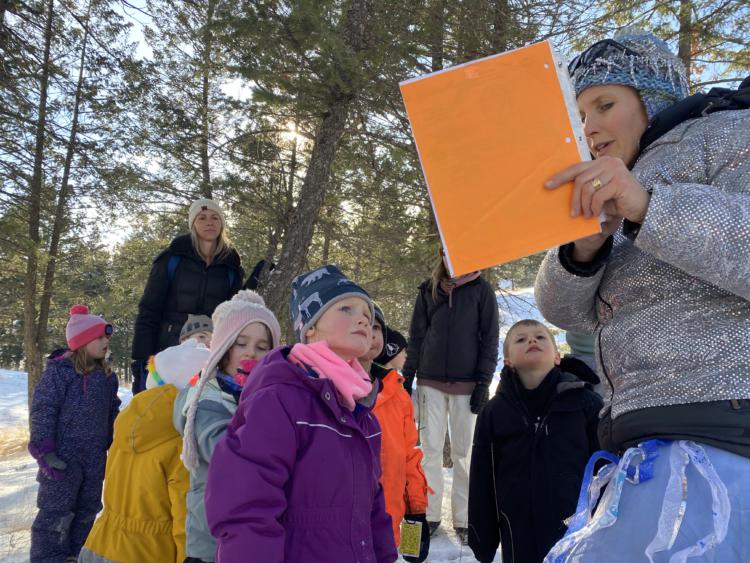
Toques and mittens securely in place, students follow ‘Ms. Frost’ out the door, across the snowy school grounds and up the road. Generous scoops of snow to mouthful as they walk, September Helmer’s Kindergarten class follows in line — sort of —behind the blue-sparkly-dressed educator to the Secret Forest.
To adult eyes, this might appear a tiny undeveloped patch of land, a small pathway to the next neighbourhood. To children though, it just might contain magic. There’s a fort made of kid-high logs, stacked just so to form a sort of teepee. There’s little groves and hills and most excellent little hiding spots. Through the trees, sunlight sparkles snow like glitter.
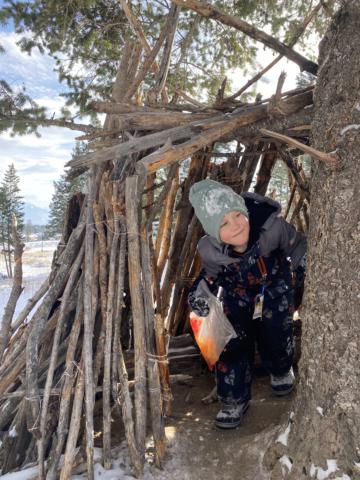
Kids are naturally curious, fueled by a desire to explore. At Wildsight, our education team leverages that natural curiosity to lead students to love the wild through hands-on learning opportunities. Wildsight’s Winter Wonder program brings students from Kindergarten through Grade 3 on outdoor adventures near their classroom door. Students discover the awe of winter and how plants and animals adapt to this season.
Ms. Helmer’s students hide ice cubes, then later try to find them, to appreciate the mighty brain power of the chickadee that stashes food for winter fuel. They stamp ground to create a large pizza pie, then play a predator and prey game. They follow a trail through the trees to learn about different plants and animal species, and what they do each winter to survive. Through it all, the students explore, engage and all around enjoy the time outdoors.
September Helmer has signed her classes up for Winter Wonder multiple years, explaining she loves finding opportunities to bring learning outside.
“The kids enjoy having a professional to guide them outdoors,” says September. “We live in such a beautiful area with rich experiences for outdoor education and I want to make sure my students have an opportunity to develop gratitude and appreciation for our local area.”
The students at Invermere’s Eileen Madson Primary School had already been exploring concepts of winter animal adaptations. So today’s trip was a great layer to add to the learning.
“I noticed some pretty intrigued faces,” says September. “They particularly liked the games, and found it fascinating to learn about the chickadee.”
This winter, more than 1,430 students across the Columbia Basin participated in a Winter Wonder program. As we wrap up another winter of outdoor learning, we look back with gratitude, and look ahead with anticipation, for students to once again explore the magic of winter and the wonder of the wild that unites us all.
We’re grateful for the generous support of the Columbia Basin Trust, Consecon Foundation, Copernicus Education Products, Keefer Ecological, LeRoi Community Foundation, the Province of British Columbia, Teck Trail, and all of our individual donors that make programs like this possible.
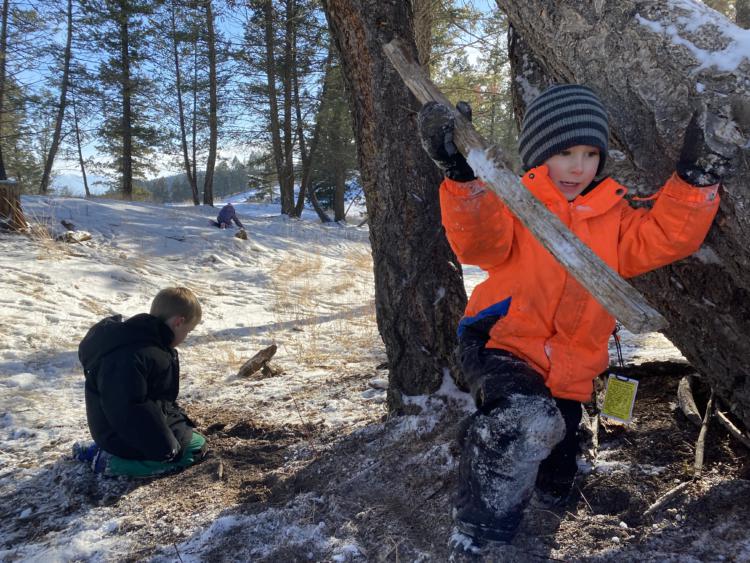
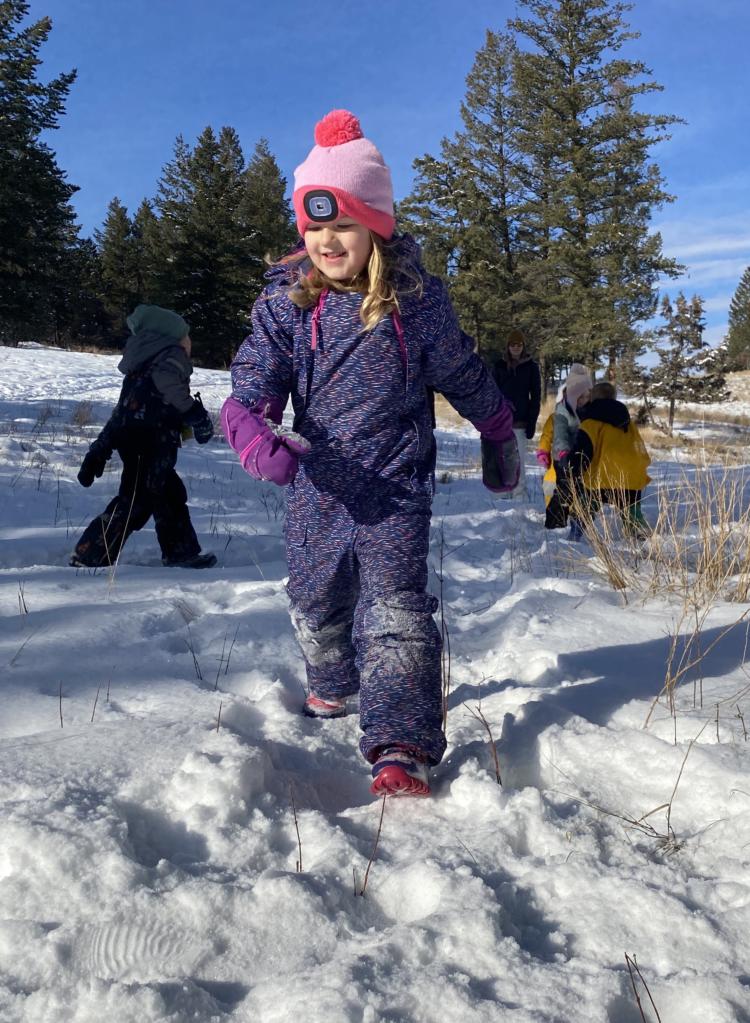
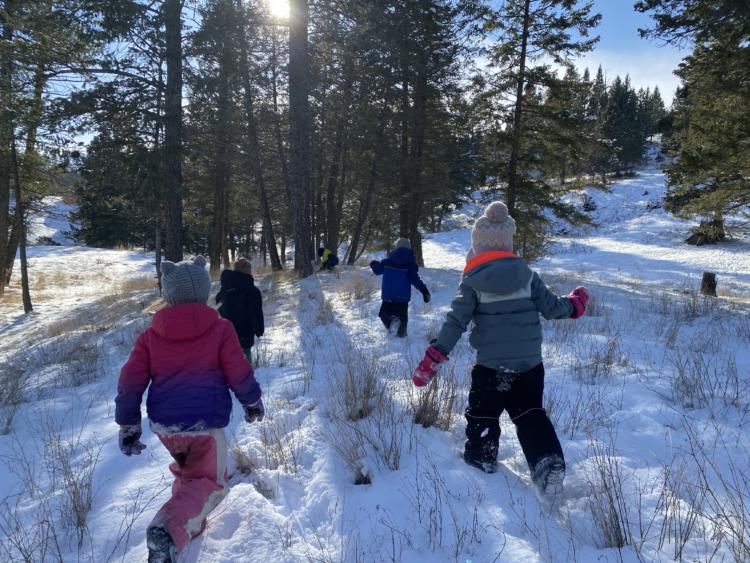
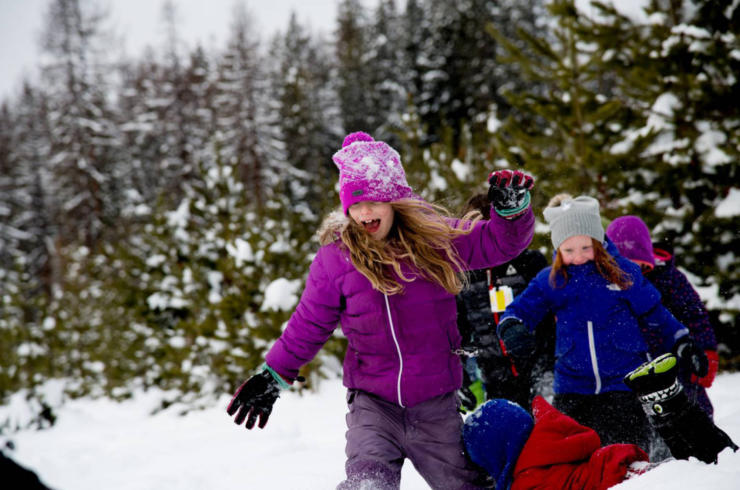
Support Environmental Education








